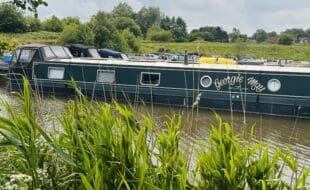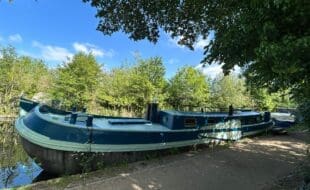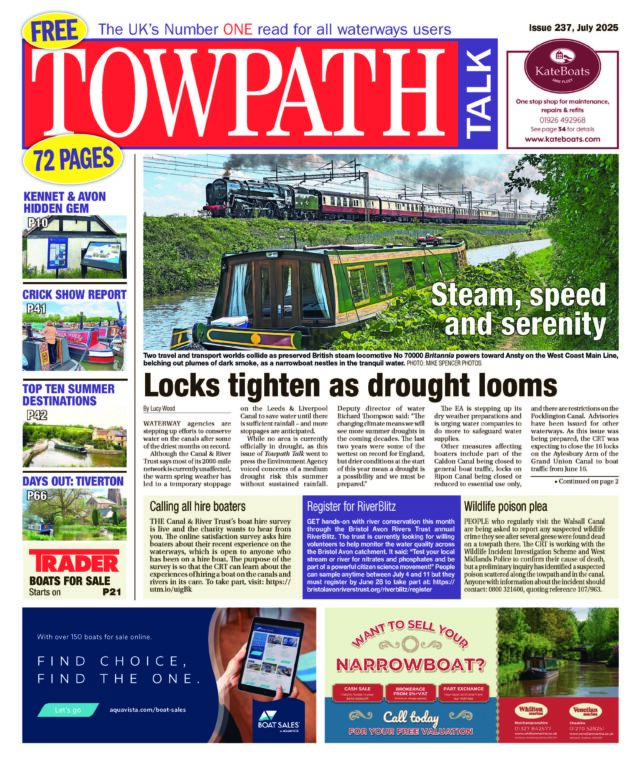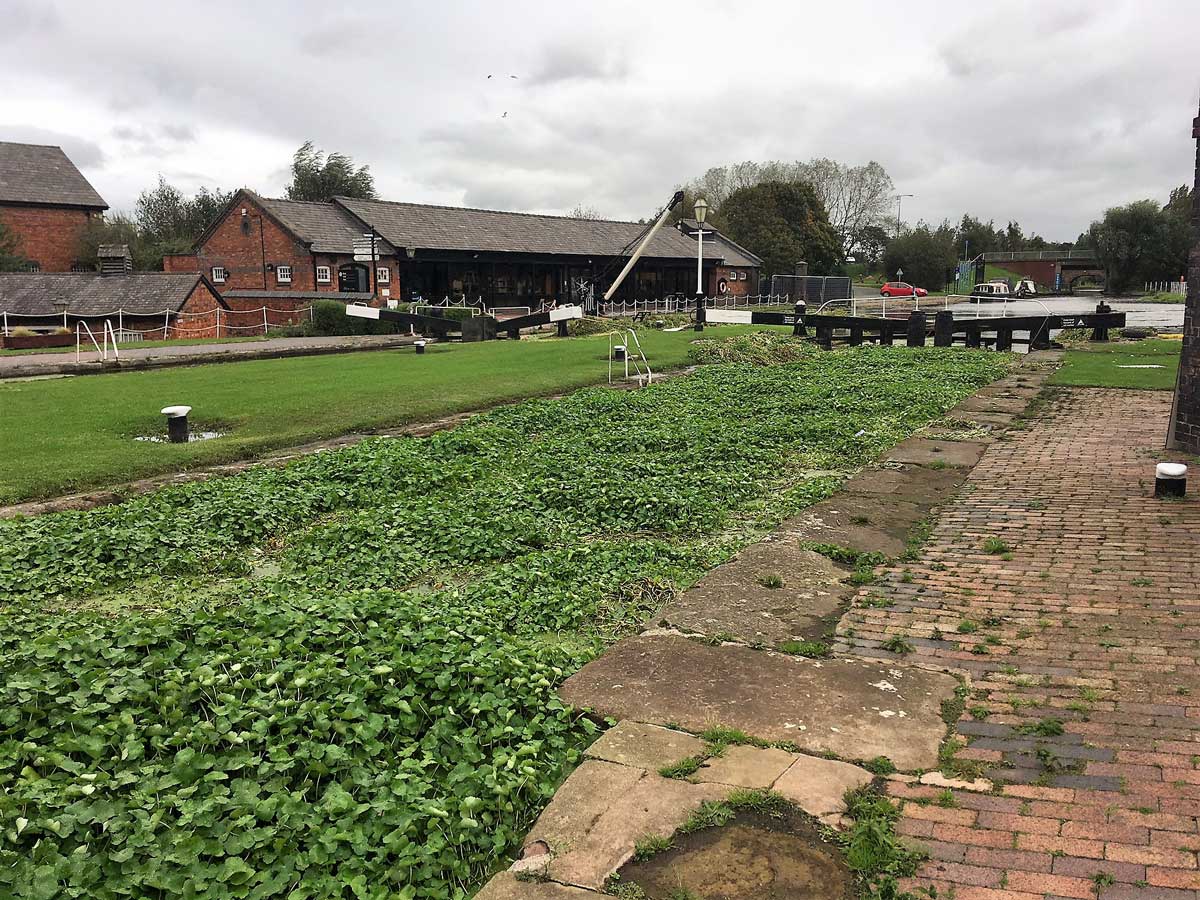
The Canal & River Trust are appealing to stop the spread of harmful waterway plants and animals as part of National Invasive Species Week (May 24-30).
Non-native plants and animals can cause serious damage. They out-compete native wildlife, damage eco-systems and spread disease. They can also block waterways, forming a thick green carpet which restricts navigation, clogs up propellers and damages boats.
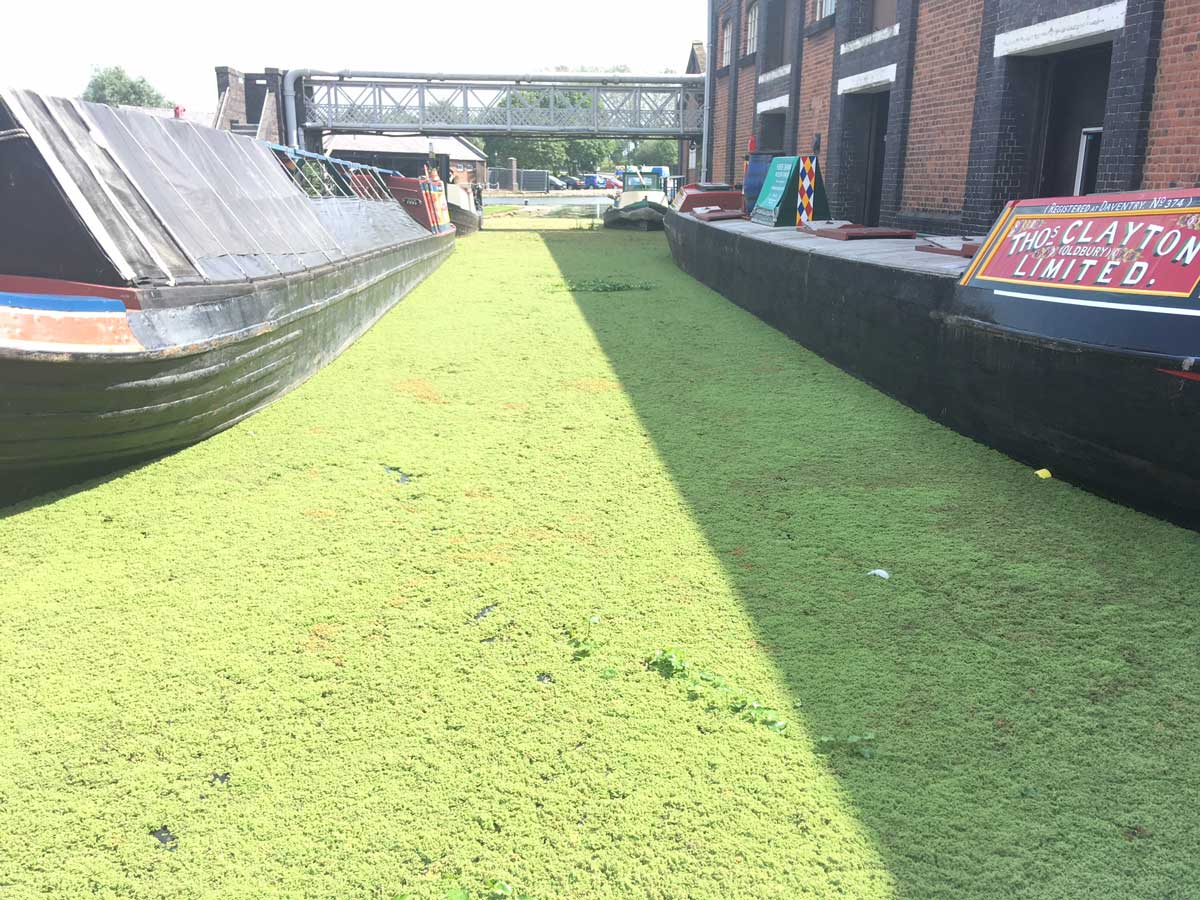
The Trust, a waterways and wellbeing charity which cares for 2,000 miles of waterways and 72 reservoirs, spends hundreds of thousands of pounds every year clearing away unwanted vegetation and managing these delicate eco systems.
To stop the spread, everyone who uses the waterways, either for work or leisure, is asked to follow DEFRA guidelines to ‘check, clean and dry’ all their equipment and personal clothing every time they move between different stretches of a canal, river or lake.

To help explain this important message, the Trust has produced three videos, filmed in Cheshire, aimed at giving detailed top tips to waterway workers, boatyards and marinas, as well as leisure users, such as boaters, rowers, paddle boarders, canoeists, anglers and walkers.
Canal & River Trust ecologist Tom King [insert regional ecologist] said: “The COVID-19 lockdown has resulted in many people discovering the delights of our waterways. However, with this use comes the extra challenge of making sure the problem of invasive species doesn’t become an even bigger problem.
“Plants like floating pennywort or curly waterweed grow so quickly and thickly – up to 20cm a day – they block the water. This makes it hard for powered boats, sailing boats and even paddle sports to move. Himalayan balsam, Japanese knotweed and giant hogweed can take over riverbanks in the summer and crowd out other plants, often dying back in the autumn, leaving riverbanks bare and exposed to erosion and flooding.
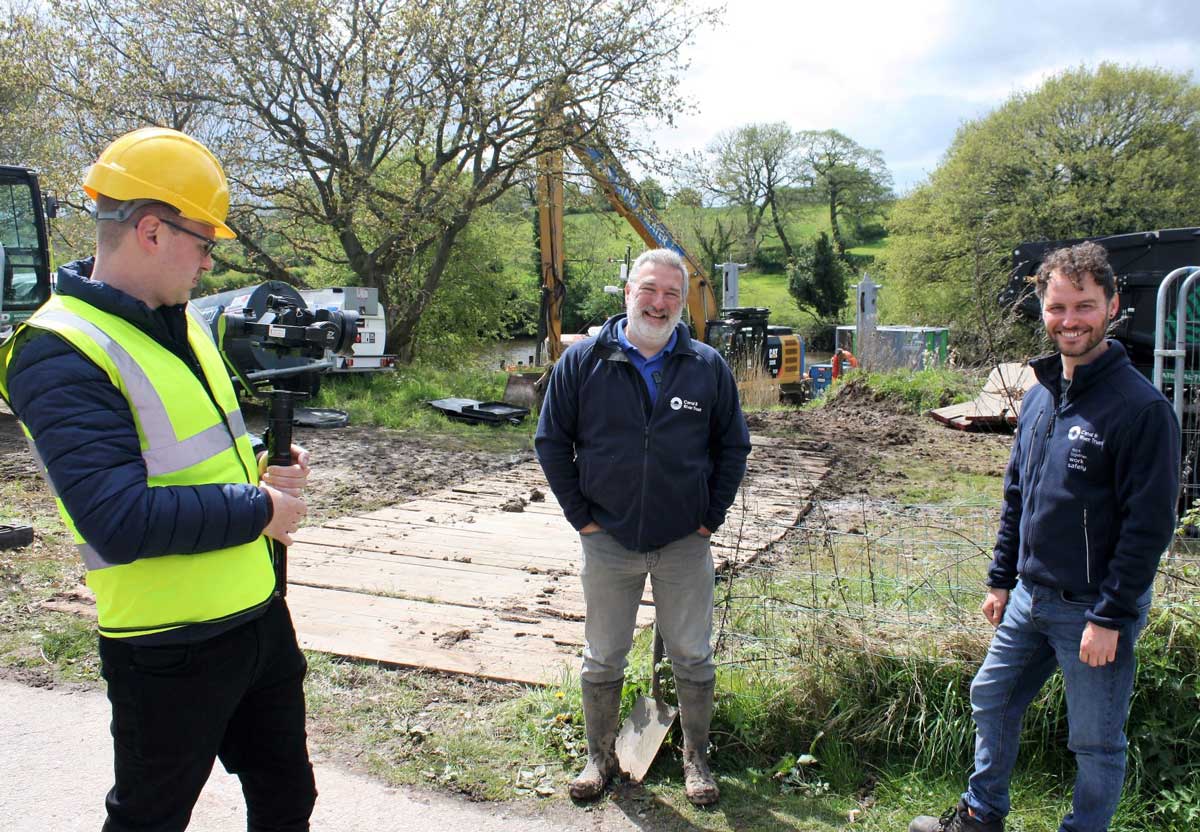
“Underwater, North American signal crayfish, zander, sterlets, wels catfish and small invertebrates, like freshwater shrimp, zebra mussels and quagga mussels, can cause enormous damage to local biodiversity. The mussels grow inside pipes and water-cooled engines, which then results in big costs and inconvenience to clear them out.
“Quagga mussels have even been found in an isolated Anglian Water reservoir in Lincolnshire. The nearest other known place with quagga mussels is London – over 140 miles away. They must have hitch-hiked on a person, their equipment, tools or machinery. Some species can survive for up to a week in damp equipment.
“Please come and enjoy our wonderful blue spaces, but do your bit to stop the spread of non-native plants and animals. Whether you’re a boater, angler, canoeist, paddle boarder or walker, please follow the three simple steps of ‘check, clean, dry’ every time you move between waterways.”
Find out more on the Canal & River Trust website about how you can stop the spread of invasive species.
There is also more information on the GB Non-Native Species Secretariat website, supported by DEFRA.

